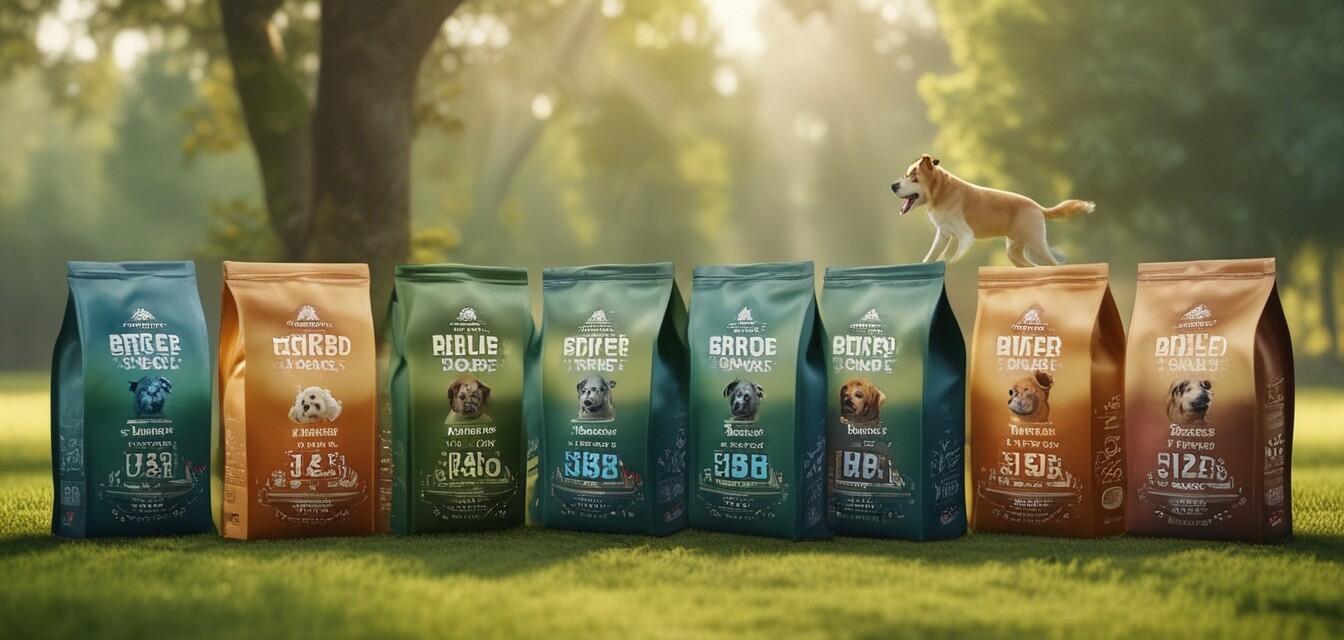
The best dog foods for large breed puppies
Key Takeaways
- Choosing the right dog food for large breed puppies is essential for their healthy growth.
- Look for foods rich in protein and balanced calcium to phosphorus ratios.
- Consider formulas that promote joint health, as large breeds are prone to joint issues.
- High-quality ingredients are crucial for optimal nutrition.
- Consult with your veterinarian for personalized recommendations.
When it comes to large breed puppies, selecting the right dog food isn't just about filling their bowls; it's about providing the right nutrition to support their growth and development. Large breed puppies grow rapidly, and their dietary requirements differ significantly from those of smaller breeds. This guide aims to help you make informed decisions regarding the best dog foods for large breed puppies.
Understanding the needs of large breed puppies
Large breed puppies require specific nutrients to support their rapid growth. Here are some essential factors to consider when choosing their food:
- Protein: Large breed puppies should consume high-quality protein sources such as chicken, beef, or lamb to promote muscle growth.
- Calories: Puppy foods should be calorie-dense to support their energy needs while controlling growth rates.
- Calcium and Phosphorus: A balanced ratio of calcium to phosphorus is crucial in preventing skeletal issues.
- Omega Fatty Acids: Essential fatty acids help maintain healthy skin and coat.
- Joint Support: Large breed puppy foods often contain glucosamine and chondroitin to support joint health.
What to look for in large breed puppy food
Ingredients
The ingredient list should primarily contain identifiable meat proteins. Avoid foods with excessive fillers, artificial preservatives, or artificial colors. High-quality dog food typically has meat as the first ingredient.
Nutritional Information
Always refer to the nutritional analysis on the dog food packaging. Large breed puppy formulas should have the following characteristics:
| Nutrient | Recommended Range |
|---|---|
| Crude Protein | 22% - 28% |
| Crude Fat | 8% - 16% |
| Calcium | 1% - 1.8% |
| Phosphorus | 0.8% - 1% |
| Fiber | 3% - 5% |
Top options for large breed puppy foods
Here are some categories of food types you might consider:
Dry Dog Food
- true to its name, dry dog food aids in dental health by reducing plaque buildup.
- It's easy to measure out the serving sizes to ensure proper feeding.
Wet Dog Food
- Wet dog food often has higher moisture content, which benefits hydration.
- Many puppies gravitate toward the taste and texture of wet food.
Grain-Free Dog Food
Grain-free formulas cater to dogs with grain sensitivities. However, always consult your vet before introducing any grain-free diets.
Feeding guidelines for large breed puppies
Feeding large breed puppies involves understanding their unique growth stages. Here are some general guidelines:
| Age | Amount of Food per Day |
|---|---|
| 8-12 weeks | 4-5 cups, divided into 3 meals |
| 3-6 months | 4-6 cups, divided into 3 meals |
| 6-12 months | 3-5 cups, divided into 2 meals |
Keep in mind that these feeding guidelines can vary based on the specific brand and formulation of puppy food. Always refer to the manufacturer's guidelines.
Monitoring growth rates
It's essential to monitor your puppy's growth to ensure they are eating the right amount of food. Extremely rapid growth may indicate overfeeding, while slow growth could mean they need more calories. Regular vet visits will help manage their growth and health effectively. Explore more pet care tips for enhancing your puppy’s health and wellness.
Common mistakes to avoid
To help you find the best food for your large breed puppy, avoid these common mistakes:
- Ignoring ingredient quality leads to poor nutrition.
- Feeding table scraps or human food can upset digestion.
- Changing foods too quickly can lead to gastrointestinal issues.
- Neglecting to consult a veterinarian may result in feeding wrong food types.
Pros
- Supports healthy growth and joint development.
- Quality ingredients lead to better health outcomes.
- Easy-to-follow feeding guidelines.
Cons
- Can be more expensive than regular puppy food.
- Requires careful selection to avoid fillers and allergens.
Final thoughts
Choosing the best dog food for large breed puppies plays a vital role in their overall health and development. By understanding their specific nutritional needs, you can make informed decisions that will last them a lifetime. For more comprehensive buying guides, make sure to check out our buying guides.